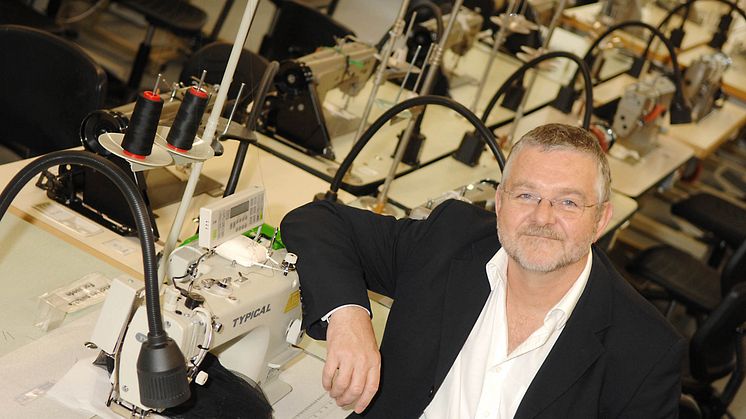
Press release -
Calculating a living wage for clothing workers
A professor from Northumbria University, Newcastle, is calling for a new minimum wage to be adopted for clothing factory workers in Bangladesh.
Doug Miller, emeritus professor of Worker Rights in Fashion at Northumbria, has worked with the Centre for Policy Dialogue (CPD) – a Bangladeshi think-tank – and Dutch-based consultancy Berenschot to calculate a living wage that takes into account the food and living costs faced by workers.
The research examines the upper poverty line, family size, a realistic picture of everyday expenses, purchasing power and a model diet that includes energy and nutritional values. It concludes that there is a huge gap between the monthly income factory workers need in order to live and the wage they are currently paid. The team therefore recommend that the Bangladeshi minimum wage needs to be adjusted.
The researchers have devised a formula to calculate the minimum living wage of at least Tk 8,200 for entry level workers who are currently paid Tk 3,000 per month. The wage increase would help workers meet the basic needs for themselves and their families while providing some discretionary income.
The research team’s independent calculations have been published in a paper, entitled ‘Estimating a Living Minimum Wage for the Ready Made Garment Sector in Bangladesh’, which they have submitted to the Bangladeshi Minimum Wage Board .
The Board is expected to announce their revised minimum wage in the coming days.
The global garment sector has long been viewed as a ‘sweatshop’ industry reliant on low-paid workers in developing countries, some of whom continue to work in dangerous conditions. Some 3.5 million workers, 80% of whom are young women, work in the ready-made garment sector in Bangladesh and are paid some of the lowest wages in the global industry. If the board were to declare the minimum living wage figure calculated by the researchers it would transform lives, not just of those workers in the sector, but of thousands of Bangladeshis whose lives depend upon their wages.
Prof Miller said: “Establishing a new minimum living wage is one thing – creating the conditions under which this might be paid is another. The majority of brands and retailers do have living wage commitments in their corporate codes of conduct but, because we are dealing with a multi-buyer outsourced supply chain, the least they could achieve would be to ring fence a living wage labour cost in their commercial transactions. This is the subject of a separate piece of action research which is underway.”
Claudia Schlangen, of Berenschot, added: “It would moreover be helpful if tripartite wage negotiations were to be held on an annual basis, so that wages are gradually corrected for inflation. This would make wage increases more predictable for factory owners and buyers. Tripartite negotiations in Bangladesh are not easy, given the power differences between the different actors, yet it will ultimately be the only sustainable solution.”
Prof Miller has 30 years experience in teaching, researching and communicating on the issues surrounding equality, corporate responsibility and industrial relations. He has worked as research director to the International Textile Garment and Leather Workers’ Federation and last year published a book on the Spectrum Sweater factory collapse, entitled Last Nightshift in Savar.
His background knowledge of past compensation efforts, which are detailed in his book, has prompted the Geneva-headquartered IndustriALL, to invite him to assist the Global Union in its on-going work with multinational retailers to negotiate a sustainable compensation scheme for least developed countries, beginning with the clothing industry in Bangladesh. This move follows efforts to secure a compensation package for the victims of a devastating Rana Plaza factory collapse earlier this year, which led to the loss of 1,130 lives and a further 1,800 injured.
Work is now underway to secure a compensation package for the victims shared by the Bangladesh government, the Employers’ Association, the owner and those brands and retailers connected with the five factories which were housed in the complex.
Date posted: October 25, 2013
Topics
Categories
Northumbria is a research-rich, business-focussed, professional university with a global reputation for academic excellence. To find out more about our courses go towww.northumbria.ac.uk
If you have a media enquiry please contact our Media and Communications team at media.communications@northumbria.ac.uk or call 0191 227 4571.







